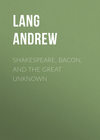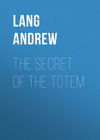Kitabı oku: «The Red Book of Heroes», sayfa 16
GORDON
Many years hence, when the children of to-day are growing old men and women, they will perhaps look back over their lives, as I am doing now, and ask themselves questions about the people they have known or have heard of. 'Who,' they will say, 'was the person I should have gone to at once if I needed help?' 'Who was the man whose talk made me forget everything, till I felt as if I could listen to him for ever?' 'What woman was the most beautiful, or the most charming?' and they will turn over the chapters in the Book of Long Ago and give the answers to themselves, or to the boys and girls who are listening for their reply. Well, if the question were put throughout England at this moment, 'What man has kindled the greatest and most undying enthusiasm during your life?' the answer would be given with one voice:
'Gordon.'
It seemed as if from the very first Nature had intended him for a soldier. His father came of a clan that has a fighting record even in Scotch history, and he was living on Woolwich Common, within hearing of the Arsenal guns, when his fourth son, Charles George, was born on January 28, 1833. Yet, strange to say, though fearless in many ways, and accustomed to rough games with his numerous brothers and sisters, Charles as a small boy hated the roar of cannon. Unlike queen Christina of Sweden, who at four years old used to clap her hands when a gun was discharged near her, and cry 'Again!' Charles shrank away and put his fingers in his ears to shut out the noise. It was not lack of courage, for he showed plenty of that about other things, but simply that the sudden sound made him jump, and was unpleasant to him.
His life was from the first full of change, as the lives of soldiers' children often are, for the Gordons were stationed in Dublin and near Edinburgh before they went out to the island of Corfu when Charles was seven. During the three years he spent there Charles grew big and strong and full of daring; guns might fire all day long without his moving a muscle, and he was always trying to imitate the deeds of boys bigger than himself. When he saw them diving and swimming about in the beautiful clear water, he would throw himself from a rock into their midst, feeling quite sure that somebody would help him to float. And as courage and confidence are the two chief qualities necessary to make a good swimmer, by the time he left Corfu he was as much at home in the sea as any of his friends.
After his tenth birthday his life at Corfu came to an end, and Charles was brought home by his mother and sent to school at Taunton, where he stayed for five years. He is sure to have been liked by his schoolfellows, for he was a very lively, mischievous boy, constantly inventing some fresh prank, but never shirking the punishment it frequently brought. At Woolwich, which he entered as a cadet at fifteen, it was just the same. He was continually defying, in a good-humoured way, those who were set over him, and more than once he had a very narrow escape of having his career cut short by dismissal.
At this period his father held the appointment of director of the carriage department of the Arsenal, and his whole family suffered greatly from the plague of mice which overran the house they lived in. After putting up with it for some time, Charles and his brother Henry, also a cadet, laid traps and caught vast numbers of the mice, and during the night they carried them stealthily across the road in baskets to the commandant's house, exactly opposite. Opening a door which they felt pretty sure of finding unlocked, they emptied the baskets one by one, and let the mice run where they would. Then the boys crept back softly to their own room, shaking with laughter at the thought of the commandant's face when he came down in the morning.
The two youths were great favourites with the workmen in the Arsenal, who used often to leave off the work they should have been doing to make squirts, crossbows, and other weapons for Charles and Henry. They must have trembled sometimes when they heard that the windows of the storehouse had been mysteriously broken, or that an officer who was known to be disliked by the cadets had received a deluge of water down his neck from a hedge bordering the road. But the culprits never betrayed each other, and the young Gordons soon grew so bold that they thought they might venture on a piece of mischief which very nearly ended their military career.
Some earthworks had been newly thrown up near a room where the senior cadets, known as 'Pussies,' attended lectures on certain evenings in the week. One night the two Gordons hid themselves behind this rampart, and while listening to remarks upon fortification and strategy the cadets were startled by a crash of glass and a shower of small shot falling about their ears. In an instant they were all up and out of the house, dashing about in the direction from which the shots had come; and so quick were they that if Charles and Henry had not known every inch of the ground and dodged their pursuers, they would certainly have been caught and expelled, as they richly deserved.
In June 1852 Charles Gordon was given a commission as second lieutenant in the Engineers, and was sent to Chatham for two years. In spite of the mice and the crossbows and the earthworks and many other things, he had gained several good conduct badges, for he had worked hard, and was noted for being clever both at fortifications and at surveying. Mathematics he never could learn. So Charles said good-bye to his father, who was thankful to see him put to man's work – for during the four years his son had passed at Woolwich he had, as he expressed it, 'felt himself sitting on a powder barrel' – and set out on the career in which he was to earn a name for justice and truth throughout three continents.
It was while Gordon was learning in Pembroke Dock something of what fortifications really were that the Crimean war broke out, and in December he was ordered to Balaclava, in charge of the materials for erecting wooden huts for the troops. He went down to Portsmouth and put the planks and fittings on board some collier boats, but not wishing to share their voyage, he started for Marseilles, and there took a steamer to Constantinople. He arrived in the harbour of Balaclava on January 1, 1855, and heard the guns of Sebastopol booming six miles away. The cold was bitter, men were daily frozen to death in the trenches, food was very scarce, and the streets of Balaclava were full of 'swell English cavalry and horse-artillery carrying rations, and officers in every conceivable costume foraging for eatables.'
Soon the young engineer was sent down to the trenches before Sebastopol, where he and his comrades were always under fire and scarcely ever off duty. It was here that his friendship began with a young captain in the 90th Foot, now lord Wolseley, who has many stories to tell of what life in the trenches was like. Notwithstanding all the suffering and sadness around them, these young men, full of fun and high spirits, managed to laugh in the midst of their work. At Christmas-time captain Wolseley and two of his friends determined to have a plum-pudding, so that they might feel as if they were eating their Christmas dinner in England. It is true that they only had dim ideas how a plum-pudding was to be made, and nothing whatever to make it with, but when one is young that makes no difference at all. One of the three consulted a sergeant, who told him he thought it would need some flour and some raisins, as well as some suet; but as none of these things could be got, they used instead butter which had gone bad, dry biscuits which they pounded very fine, and a handful of raisins somebody gave them. Stirring this mixture carefully by turns, they calculated how long it would have to boil – in one of captain Wolseley's three towels which he sacrificed for the purpose – so that they might be able to enjoy it at a moment when they would all be off duty. Five hours, they fancied, it must be on the fire, but it had scarcely been boiling one when the summons came to go back to their work. Resolved not to lose the fruits of so much labour and care, they snatched the plum-pudding from the pot and ate a few spoonfuls before running out to their posts. But Wolseley had hardly reached his place before he was seized with such frightful pains that he felt as if he would die. His commanding officer, who happened to pass, seeing his face looking positively green, ordered him back to his hut. But a little rest soon cured him, and, like the others, he spent the night in the trenches.
You will have read in the story of the 'Lady in Chief' something about the hardships which the allied army of English, French, and Turks went through during the war with the Russians, so I will not repeat it here. Gordon, whose quick eye saw everything, was greatly struck with the way the French soldiers bore their sufferings. 'They had nothing to cover them,' he says, 'and in spite of the wet and cold they kept their health and their high spirits also.' Our men worked hard and with dogged determination, but, as a rule, they could not be called lively. True, till Miss Nightingale and her nurses came out they were left when wounded to the care of rough and ignorant, however kindly, comrades, while the French had always their own Sisters of Charity to turn to for help. But it is pleasant to think that the sons of the men who had fallen in the awful passage of the Berezina forty years before were worthy of their fathers, and could face death with a smile and a jest as well as they.
As the war went on and the assaults on the town of Sebastopol became more frequent, the English generals learned to know of what stuff their young officers were made, and what special duties they were fit for. They marked that Gordon had some of Hannibal's power of guessing, almost by instinct, what the enemy was doing – a quality that rendered him extremely useful to his superiors. With all his untiring energy and eagerness – forty times he was in the trenches for twenty hours – he never overlooked the details that were necessary to ensure the success of any work he was entrusted with, and he never relaxed his watchfulness till the post to be won was actually taken. In his leisure moments he seems to have been fond of walking as far as he could without running into danger, and writes home in February of the grass that was springing and the crocuses that were flowering outside the camp. Sometimes he would go with a friend down to the great harbour on the north side of which the Russians were entrenched, and listen to them singing the sad boating songs of the Volga, or watch them trying to catch fish, chattering merrily all the while.
At last the forts of the Mamelon and the Malakoff were stormed, and the Russians abandoned Sebastopol. Gordon, who had often narrowly escaped death, was mentioned by the generals in despatches; but he did not receive promotion, and, except a scar, the only token he carried away of those long months of toil and strain was the cross of the Legion of Honour bestowed on him by the French. But he was a marked man for all that, and was sent straight from the Crimea, after peace was made, to join a mission for fixing fresh frontiers for Russia south-west along the river Pruth and on the shores of the Black Sea.
Wherever he went, whether he was on the borders of Turkey, in Armenia, or in the Caucasus, where he proceeded after a winter in England, he made the best of his opportunities and saw all he could of the country and the people. He was as fond as ever of expeditions and adventures, and climbed Ararat till a blinding snowstorm came on and the guides refused to proceed. In the Caucasus he dined out whenever he was asked, and was equally surprised at the beauty of the smart ladies (who wore bracelets made of coal) and at the ingrained dirt of their clothes and their houses. On the whole, though he thoroughly enjoyed the good dinners they gave him, he preferred going on shooting expeditions into the mountains with their husbands and sons.
At the end of 1858 he was ordered home again, and a few months later obtained his captaincy, and was made adjutant and field-work instructor at Chatham. But this did not last long, for in a year's time he was destined to undertake one of the two great missions of his life.
Early in 1860 a war with China broke out, and in this also the French were our allies. More soldiers were needed, and volunteers were asked for. Gordon was one of the first to send in his name, but before he reached Pekin the Taku forts, at the mouth of the Tientsin River – forts of which in the year 1900 we were to hear so much – had been taken. However, the famous Summer Palace was still to be captured, and this, which indeed might be called the eighth wonder of the world, lay out in the country, eight miles away from Pekin. The grounds, covering more than twelve miles, were laid out with lakes, fountains, tea-houses, waterfalls, banks of trees, and beds of flowers, while scattered about were palaces belonging to different members of the royal family, all filled with beautiful things – china of the oldest and rarest sorts, silks, lacquer, cabinets, and an immense variety of clocks and watches. By order of the English envoy this gorgeous place was given over to pillage, in revenge for the ill-treatment of some French and British prisoners. One can form a little idea of the vast amount of treasures it contained from constantly seeing scattered in houses a watch or a lacquer box or a china bowl that, we are told, had once decorated the Summer Palace; they really seem to be endless. Lord Wolseley tells how he happened to be standing by the French general in the gardens while the looting was going on, and as a French soldier came out he handed to his chief something that he had brought expressly for him. Then, turning to the young English officer, he held out a beautiful miniature of a man wearing a dress of the time of Louis XIV.
'That is for you, my comrade,' he said, smiling, and Wolseley, heartily thanking him, examined the gift.
'How,' he thought, 'could a miniature of a French poet living two hundred years ago have got to Pekin?' Then he remembered that an embassy from China had arrived in France, bearing presents to the French court. Louis received them graciously, and showed them the splendours of Versailles and all the curious and artistic ornaments it contained. When the envoys left, the king gave them gifts of French manufacture as valuable as their own to take to their emperor, and among them was this miniature of Boileau, by Petitot, the greatest of French miniaturists.
The imperial throne, which stands on dragon's claws, and is covered with cushions of yellow silk, the imperial colour, was bought by Gordon himself, and presented by him to Chatham, where it may still be seen.
Till the large sum fixed for the expenses of the war was paid General Staveley was left with three thousand men in command at Tientsin, and Gordon remained with him. Tientsin is a dreary place in a salt plain, and the climate is very cold, as it is throughout North China. But Gordon minded cold far less than heat and mosquitoes, and besides his days were full from morning till night, building huts for the soldiers and stables for the horses, and in managing a fund which he had collected to help some Chinese in the neighbourhood who had been ruined by the war. Though very careless of his own money, and ready to give it away without inquiry to any beggar who asked for it, he was most particular about other people's, and the attention which he paid to small things enabled him to spend the fund in the manner that would best aid the poor creatures who had lost everything. Now and then he gave himself a day's holiday, and explored the country, as he was fond of doing; and once he rode out to the Great Wall, twenty-two feet high and sixteen wide, which runs along the north-west of China, over mountains and across plains, for fifteen hundred miles, and was built two thousand years ago by an emperor to keep out the invading hosts of the Tartars. At certain distances strong forts were placed, and these were garrisoned by Chinese soldiers. As he passed through the more remote villages the inhabitants would come out of their houses and stare. A white man! They had heard that there were such, though they had never really believed it. Well, he was a strange creature truly, with his hair cropped close and pink in his cheeks, and they did not much admire him!
Nearer Pekin he met long strings, or caravans, of camels laden with tea, making their way to Russia. Everywhere in the neighbourhood of the mountains it was frightfully cold, and raw eggs were frozen so hard that no one could eat them; but Gordon could do with as little food as any man, and did not suffer from the climate. He came back strengthened and interested, and it was as well he had the short rest to brace him, for now there lay before him a very difficult task.
For quite thirty years great discontent with government had been felt by the peasants and lower classes in some of the central provinces of the empire, and a long while before the war with England broke out a peasant emperor had been proclaimed. The insurrection – or the Taeping rebellion, as it is called – could have been easily put down in the beginning, but ministers in China are slow to move, and it soon became a real danger to the empire. The great object of the rebels was to gain possession of Shanghai, the centre of European trade, built in the midst of canals and rivers, with the great Yang-tse-kiang at hand to carry into the interior of China the goods of foreign merchants of all countries that come to its harbour across the Pacific. Pirate vessels, too, haunted its shores, ready to pounce upon the rich traders, and when their prizes were captured, they went swiftly away, and hid themselves among the islands and bogs that stretched themselves a hundred miles to the north and south of the city.
Thus Shanghai was a very important place both to Chinese, French, and English; yet for twelve years the rebellion had been allowed to go on unchecked, burning, pillaging, and murdering, till in 1853 the rebels had reached a point only a hundred miles distant from Pekin itself. Then soldiers were hastily collected, and the Taepings forced back; quarrels broke out among their leaders, and most likely the rebellion would have melted away altogether had it not been for the appearance four years later of young Chung Wang, who assumed the command, and proved himself a most skilful general. As long as he led the Taepings in battle victory was on their side; if he was needed elsewhere, they were invariably defeated.
Inspired by his successes, Chung Wang attacked and took several rich and important towns in the Shanghai district, and held Nankin, the ancient capital of China. Shanghai trembled when the flames of burning villages became visible from her towers and pagodas, and even the Chinese felt that, if they were to be saved at all, measures must be quickly taken. Volunteers of all nations living in the town, Chinese as well as Europeans and Americans, put themselves under the command of an American named Ward, who drilled them, trained them, and fought with them, and, it is said, gave battle to the rebels on seventy different occasions without once being beaten. Well had his troops earned the title afterwards given them at Pekin, of the Ever-Victorious Army.
This was the state of things when, in May 1862, Gordon was sent to Shanghai in command of the English engineers who, with some French troops, were to assist the Chinese army in clearing the district round Shanghai of the dreaded Taepings. The nature of the country, almost encircled by water, was such that the help of a good engineer was needed if the expedition was to be successful, and Gordon was busy all day in surveying the canals or moats outside the walls of some city they were about to attack, to see at what point he could throw a bridge of boats across, or where he could best place his reserves. At the end of six months the enemy was forced back to a distance of forty miles; but the French admiral Protet had been killed in action, and Ward had fallen while leading an assault.
By this time the emperor and his ministers at Pekin understood that if the Taepings were to be put down the Chinese army must be commanded by a general capable of opposing Chung Wang, and a request was sent to the English government that the post might be temporarily offered to major Gordon. After some hesitation, leave was granted, and permission was given to a certain number of officers to serve under him. The emperor was overjoyed – much more so than Gordon, who was promptly created a mandarin. He foresaw many difficulties in store before he could get his 'rabble' of four thousand men into order, and at the outset he had much trouble with Burgevine, Ward's successor in command of the Ever-Victorious Army, but a very different man from Ward himself. However, by the help of the famous Li Hung Chang, Burgevine was ultimately got rid of, but not before he had done a great deal of mischief. Gordon was free to devote all his energies to building a little fleet of small steamers and Chinese gunboats that could go down the rivers and canals, and hinder the foreign traders from secretly supplying the rebels with arms and ammunition.
The strict discipline enforced by Gordon made him very unpopular with his little army, and they could not understand why he made the act of pillage a crime, to be punished by death. But when we think how wholly impossible it is for any European or American to guess what is going on in the mind of any Asiatic, it is surprising, not that he met with difficulties, but that he ever succeeded in obtaining obedience. As it was, two thousand of his men deserted after some heavy fighting, and Ching, the Chinese general, was jealous of him, and incited the troops to oppose and annoy him in every way. Besides, Li Hung Chang was behindhand in paying his army, and, as Gordon felt that his own good faith and honour were pledged to punctual payment, he tendered his resignation as commander. This frightened the emperor and his ministers so much that the money due was quickly sent, and by the help of General Staveley matters were arranged.
At the capture of Quinsan Gordon took prisoners about two thousand Taepings, whom he drilled with care and enlisted in his own army, turning them, he said, into much better soldiers than his old ones. Eight hundred of them he made his own guard, and under his eye they proved faithful and trustworthy. With the help of his new force he determined to besiege the ancient town of Soo-chow, situated on the Grand Canal and close to the Tai-ho, or great lake.
All around it were waterways leading to the sea, but the Grand Canal itself, stretching away to the Yang-tse-kiang, was held by the Taeping general Chung Wang.
Now the possession of Soo-chow was of great importance to both parties, and Gordon at once proceeded to cut off its supplies that came by way of the sea and the Tai-ho, by putting three of his steamers on the lake, so that no provisions could get into the city except through the Grand Canal. On the land side fighting was going on perpetually, and by the help of a body of good Chinese troops Gordon gained a decisive victory in the open field. We can scarcely, however, realise all the difficulties he had to contend with in his army itself. General Ching not only hated him, and always tried to upset his plans, but was quite reckless, and if left to himself invariably got into mischief. Then the minister, Li Hung Chang's brother, who had been given the command of twenty thousand troops, was utterly without either instinct or experience, and continually hampered Gordon's movements by some act of folly. Worst of all, he could not feel sure of the fidelity of his own officers, and during the siege he found that one of them had actually given information of his plans to Chung Wang.
As soon as the man's guilt was certain Gordon sent for him, and in the light of one whose soul had never held a thought that was not honourable and true the traitor must have seen himself as he really was. We do not know what Gordon said to him – most likely very little, but he offered him one chance of retrieving himself, and that was that he should lead the next forlorn hope.
In spite of his treachery the culprit was able to feel the baseness of his conduct. He eagerly accepted Gordon's proposal, though he was well aware that almost certain death was in store. And his repentance was real, and not merely the effect of a moment's shame, for when, some time after, a forlorn hope was necessary to carry the stockades before Soo-chow, Gordon, whose mind had been occupied with other things, had entirely forgotten all about his promise. But though he did not remember, the officer did, and claimed his right to lead. He was the first man killed, but the stockades were carried, and after two months' siege Soo-chow was won.
Nowhere during Gordon's service in China was the difference between East and West more clearly shown than in the events that happened after the capture of Soo-chow. Gordon respected his enemies, who had fought bravely, and wished them to be granted favourable terms of surrender. Moh Wang in particular, the captain of the city, had shown special skill and courage, and before the town fell Gordon had obtained a promise from Li Hung Chang that the Taeping commander's fate should be placed in his hands. At a council held inside Soo-chow, Moh Wang desired to hold out, but the other Wangs (or nobles) all voted for surrender, and at length they began to quarrel. Moh Wang would not give way, and then Kong Wang caught up his dagger and struck the first blow. The rest fell upon Moh Wang, and dragged him from his seat, cutting off his head, which they sent to Ching the general as a gift.
As plunder had been strictly forbidden by Gordon, he was very anxious to give his soldiers two months' pay to make up; but one month's pay was all he could obtain, and that with great difficulty, while the troops, angry and disappointed, threatened to revolt and to march against Li Hung Chang, as governor of the province. This was, however, stopped by Gordon, who then went into the city to the house of Nar Wang, another Taeping leader, whom he wished also to gain over. On the previous day he had heard from Ching that at twelve o'clock on the morning of December 6 the Wangs had arranged to meet the governor and surrender Soo-chow, as the emperor had consented to spare their lives and those of the prisoners; so Gordon started early in order to catch Nar Wang before he left, reaching Nar Wang's house just as he and the other Wangs were mounting their horses for the interview. After talking to them a little he bade them good-bye, and they rode away.
The fate that they met with was the same as they had dealt to Moh Wang. It seemed ridiculous to the governor to keep faith with men who had just delivered themselves and their city into his hands, and almost every Chinaman would have agreed with him. The Wangs were all taken over to the other side of the river and there beheaded, their heads being cut off and flung aside. But somehow, though the murder was committed in broad daylight, it was kept a secret till the following day.
This breach of faith in murdering men who had surrendered might long have remained unknown to Gordon but for a slight change in his plans. He suddenly decided that he would embark on one of his steamers on the Tai-ho, instead of leaving the city by another route. It was some little time before steam could be got up, so he went for a walk through the streets with Dr. Halliday Macartney, whose name will always be connected with China. To his surprise, crowds of imperialists were standing about, talking eagerly and excitedly, and it was clear to both Englishmen that some sort of a disturbance had taken place. Turning a corner they suddenly met General Ching, who grew so pale and looked so uncomfortable that Gordon's suspicions were aroused, and he at once inquired if the Wangs had seen Li Hung Chang, and what had taken place.
Ching replied that they had never been to Li Hung Chang at all, which astonished Gordon, who answered that he had seen them starting, and if they had not gone there, where were they? Then Ching said they had sent a message to the governor stating that they wished to be allowed to keep twenty thousand men, and to retain half of the city, building a wall to shut off their own portion. Gordon was greatly puzzled by this information, and asked if Ching thought that the Wangs could have joined the Taepings again in some other place; but the Chinese general replied that he thought most likely that they had returned quietly to their own homes.
To all appearance Ching was speaking the truth, yet Gordon could not feel satisfied. Turning to Macartney, who was standing by listening to the conversation, he begged him to go quickly to Nar Wang's house and tell him that the surrender must be unconditional, and then to return to him at a certain spot. When Macartney reached the house where Nar Wang lived he was informed by the servant who opened it that his master was out.
'Will he be in soon, for I must see him,' inquired Macartney. 'I have business of the greatest importance.'
The man looked at him silently, and then drew his hand slowly across his throat. Macartney understood the ghastly sign, and went swiftly away, but only just in time to avoid a crowd of pillagers, who poured into the house and in a few minutes had wrecked or stolen all they could lay hands on. He soon reached the spot which Gordon had appointed, but, long though he waited, Gordon never came.
After Macartney had left him Gordon stayed some time talking with Ching, and trying to find out what had really occurred, for that some dark deed had taken place he became quite convinced. However, not even torture can wring from a Chinaman what he does not choose to tell, and at length Gordon gave up the attempt in despair, and hurried through crowds laden with plunder to Nar Wang's house in order to see and hear for himself. The door stood open, and he walked rapidly through the rooms. At first the dwelling seemed as empty as it was bare, but at length he thought he saw some eyes looking at him behind a pile of rubbish.



![XXXII Ballades in Blue China [1885]](https://cdn.litres.ru/pub/c/cover_100/25230660.jpg)






